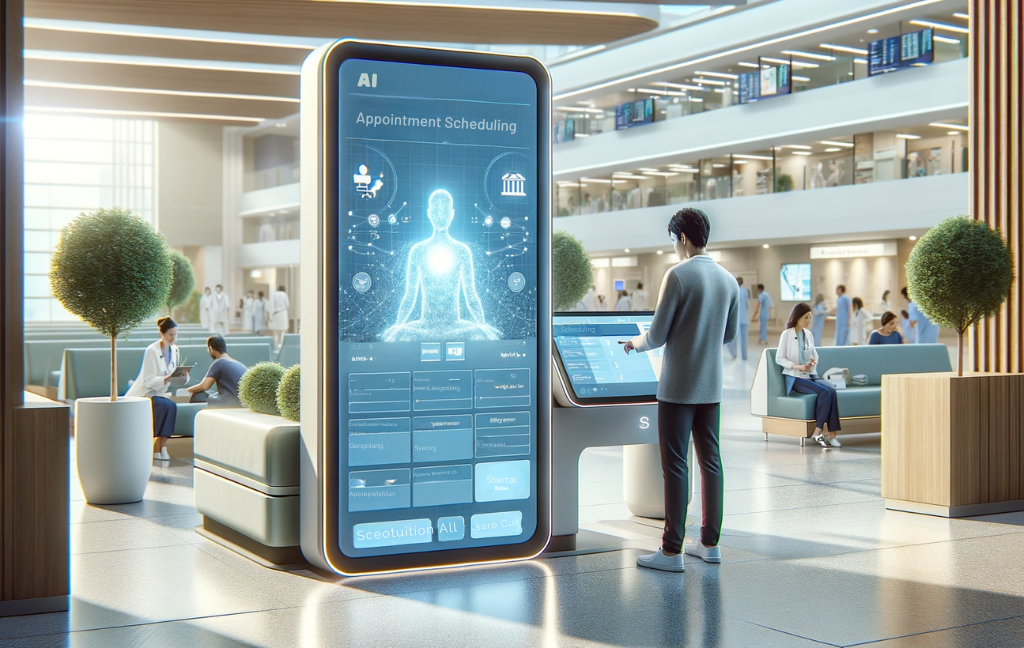Transforming Patient Care: The Revolutionary Role of AI in Streamlining Healthcare Scheduling
In the ever-evolving healthcare landscape, efficiency, and patient care are paramount. Among the myriad challenges healthcare providers face, patient scheduling stands out as a critical yet often understated aspect. It’s here that Artificial Intelligence (AI) has begun to play a transformative role, offering solutions that are reshaping how healthcare professionals manage their most valuable resource: time.
The Challenge of Traditional Scheduling Systems
Traditionally, patient scheduling has been a largely manual process, fraught with inefficiencies. Clinics and hospitals have long struggled with overbookings, long patient wait times, and the underutilization of resources. These scheduling inefficiencies not only strain healthcare providers but also impact patient satisfaction and care quality.
AI: A Game Changer in Patient Scheduling
Enter AI. By leveraging sophisticated algorithms, AI in patient scheduling analyzes vast amounts of data to optimize appointment times, predict no-shows, and balance the workload among healthcare staff. This technology is not just about automating the process; it's about enhancing decision-making, leading to more efficient and patient-centric scheduling.
Predictive Analytics: Reducing No-Shows and Optimizing Appointments
One of the most significant advantages of AI in patient scheduling is its use of predictive analytics. By analyzing historical data, AI can predict which patients are more likely to miss their appointments and suggest overbooking strategies accordingly. It can also identify patterns in patient flow, enabling clinics to optimize appointment slots to reduce wait times and avoid bottlenecks.
Resource Allocation: Maximizing Efficiency
AI algorithms excel in resource allocation. They consider various factors such as the type of appointment, the urgency of the situation, and the availability of healthcare professionals to ensure an optimal distribution of resources. This leads to better time management and increases the overall efficiency of healthcare services.
Personalized Patient Experience
AI-driven scheduling systems can offer a more personalized experience for patients. They can match patients with the right healthcare providers based on their specific needs and preferences. Additionally, AI can facilitate easier rescheduling and appointment reminders, improving communication and reducing the likelihood of missed appointments.
Implementing AI in Healthcare Settings
Implementing AI in patient scheduling requires careful planning and consideration. It involves integrating AI systems with existing Electronic Health Records (EHRs) and ensuring compliance with healthcare regulations, particularly regarding patient data privacy and security.
Training and Adoption
Training healthcare staff to use AI-based scheduling tools is crucial for successful implementation. It involves not just technical training but also an understanding of how AI decisions are made, ensuring a human-in-the-loop approach for critical decision-making processes.
Ethical Considerations and Data Privacy
As with any AI implementation in healthcare, ethical considerations and data privacy are paramount. Ensuring that AI systems are unbiased and that patient data is handled securely and in compliance with regulations like HIPAA is critical.
The Future of AI in Patient Scheduling
The future of AI in patient scheduling looks promising. With advancements in machine learning and natural language processing, these systems are expected to become more sophisticated, offering even more personalized and efficient scheduling solutions. Integration with telehealth and remote monitoring systems could further enhance the capabilities of AI in managing patient care.
Continuous Learning and Improvement
AI systems are capable of continuous learning, meaning they can adapt and improve over time based on new data. This characteristic is particularly beneficial in dynamic environments like healthcare, where patient demographics and healthcare practices are constantly evolving.
Expansion Beyond Scheduling
The potential of AI extends beyond just scheduling. It can play a role in predictive diagnostics, treatment planning, and even in managing healthcare supply chains. The integration of these systems can lead to a more holistic approach to healthcare management.
Conclusion
The integration of AI in patient scheduling is a significant step forward in the quest for more efficient and effective healthcare delivery. By optimizing schedules, reducing wait times, and ensuring better resource allocation, AI not only enhances operational efficiency but also significantly improves patient care and experience. As technology advances, the role of AI in healthcare is set to expand, paving the way for a more responsive, patient-centered healthcare system.
